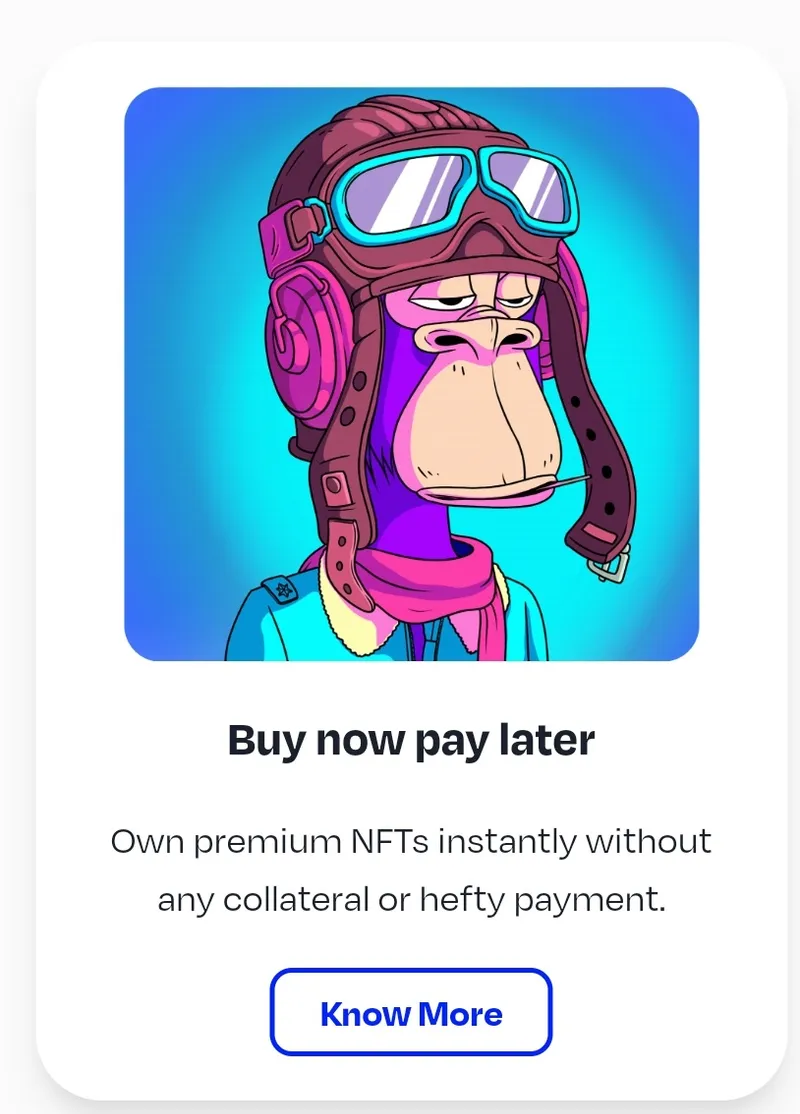This Web 3.0 platform allows you to loan and rent valuable NFTs
Deefy is a blockchain specific startup aiming to solve a major problem in the NFT marketplace – the lack of options to liquidate one’s precious NFTs. They do this by facilitating loaning, renting and BNPL options.
With the widespread and rapid adoption of Web 3.0 and Non-Fungible Tokens (NFTs), cryptocurrencies and blockchain have become common parlance for most earning millennials. However, as a relatively new mode of financial transactions, these concepts come with their own set of risks. Singapore-based platform Deefy aims to address these risks and make NFT transactions easier than ever before. Founded by Amogh Tiwari and Ujwal Gupta in 2022, Deefy has quickly made its presence felt.
“In the current NFT landscape, there are no methods to generate income, instead there are only speculative price increases over time. Deefy expects this issue to only get worse as NFTs are adopted into mainstream use. This is already an increasingly large problem for certain NFT holders such as funds that invest in expensive/useful yield-earning NFTs for the long run. These NFT holders want to earn yields before reselling them and do not have the desire, time or expertise to do so. The wide majority of these assets are sitting unused in wallets. NFTs such as virtual art, gaming assets, virtual land, domain names, intellectual property rights, and more could be rented to users for a small rental fee to generate income yield,” explains Amogh in a chat with The Decrypting Story.
The NFT landscape
Amogh dropped out of college in 2015, while pursuing a degree in Product Design at the National Institute of Fashion Design, Chennai, and Deefy is his fourth venture.
“My father is a truck driver, so it was not an option for my family to take risks. My journey has not been smooth, but design has always been my core characteristic, and I have over four years of experience in art direction and product design. I also love physics,” he shares.
Ujwal has a full stack engineering background, having studied at Jamia Millia Islamia University in Delhi. He has over two years of experience in blockchain development. Together, their journey to Deefy came through a long-term and steady understanding of blockchain and digital assets. They discovered a major problem worth solving, and in the process, were able to stand out as enablers rather than creators.

The idea is a simple one - Deefy is a cross-chain loaning and renting platform aimed at millennials. They enable instant loans from NFTs and digital assets and build credit score. With Deefy, NFT owners get instant financial value on their verified and vetted NFTs.
Amogh further explains, “Deefy acts as an escrow account between lenders and borrowers. We ensure that only quality borrowers and lenders are accepted, and we do this by calculating the floor value of NFTs. We have created a revolutionary shift by introducing a truly decentralised ecosystem, and focussing on making creator centric products available for creators, influencers, Gen Z and micro-financiers.”
Since its launch, Deefy has enabled the unlocking of billions in sleeping NFT liquidity by introducing a decentralised ecosystem that depends on creator-centric financial instruments.
Deefy’s team aims to enable one billion digital asset owners and add more financial utilities to the decentralised finance ecosystem in the next two years.
How it works?
As a decentralised protocol built on major blockchains that enable buying, renting, and loaning of NFTs and digital assets, Amogh asserts that Deefy is entirely unique from anything else out there.
He outlines the problem by saying, “NFTs don’t have the essential utility framework used by other financial instruments right now. Therefore, two major problems arise. The first is affordability, because NFTs require hefty upfront payment along with gas fees. There are no options for EMIs or ‘pay later’. The second problem is of liquidity.”
He believes their USP solves these problems well. The founders claim Deefy is the world’s first platform allowing ‘Buy now and pay later’ on an NFT marketplace. This makes NFTs more affordable for users. Further, they do this without requiring a collateral, as it is powered by their credit score.
By relying on Deefy’s multi-chain financial instruments, the owners of digital assets and NFTs gain high return on their investment along with the opportunity to grow their asset portfolio and value.
The platform is named after ‘DeFi’, the term that signifies ‘decentralised finance’. Since the term was tainted due to many rugpulls and scams, the team tweaked it a little. They wanted their name to be easy to remember and relatable, as that would help in building trust among their customers.
There is no subscription to sign up to use Deefy but the team charges a percentage of commission on successful transactions.
Growth story
Data published by Emergen Research indicates that the market for NFTs will reach $3,57,316.3 million by 2030. It also notes the key driving factors for this phenomenal growth - the increasing use of NFTs in supply chain and logistics and a rising demand for decentralised marketplaces.
Amogh explains, “Our P2P lending MVP is live on testnet. We have fulfilled $100,000 of loan requests on supporting chains like Ethereum, Polygon and Binance. We also have a growing community of over 1000 members and have received a grant from Polygon, in turn setting up a key marketing partnership with Polygon Studios.”
The team feels that Deefy’s success has depended on four factors - affordability, increasing liquidity, creating less risk, and reducing time. Apart from catering to a pan-India clientele, they are also focusing on western and European markets as the users there are more educated. The more relaxed regulations from an operational point of view have led to higher adoption of NFTs there.
However, challenges do exist, with consistent growth being the biggest problem. Amogh explains that Web 3.0 applications embrace a decentralised architecture, pseudonymity, and user-owned data, hence they break every mainstream growth strategy. Leading Web 2.0 consumer applications hit massive scale by leveraging centralised platforms like Facebook. They bring identity online to engender trust, in the process collecting massive proprietary datasets. Web 3.0 applications, on the other hand, have no app store, do not know who their users are, and have no method to communicate with them.
“We overcome these problems by partnering with NFT marketplaces on the Polygon chain and focusing on community-led growth. We also look at token-driven growth pools and community building and focus on onboarding marketplaces,” he says.
Next the team is working to launch their public beta version and are partnering with artists for this. They plan to generate a million dollars in monthly revenue in Quarter Three and establish major partnerships with lending banks to share the vision of decentralised lending. Other key partnerships they are working on include those with major collections like Bored Ape and Opensea.
The traditional unsecured lending market makes up a global industry worth $11 trillion — yet none of this lending had come on-chain until TrueFi completed DeFi’s first uncollateralised loan in 2020. Things are set to change and players like Deefy are at the forefront of this digital revolution.
Edited by Anju Narayanan








